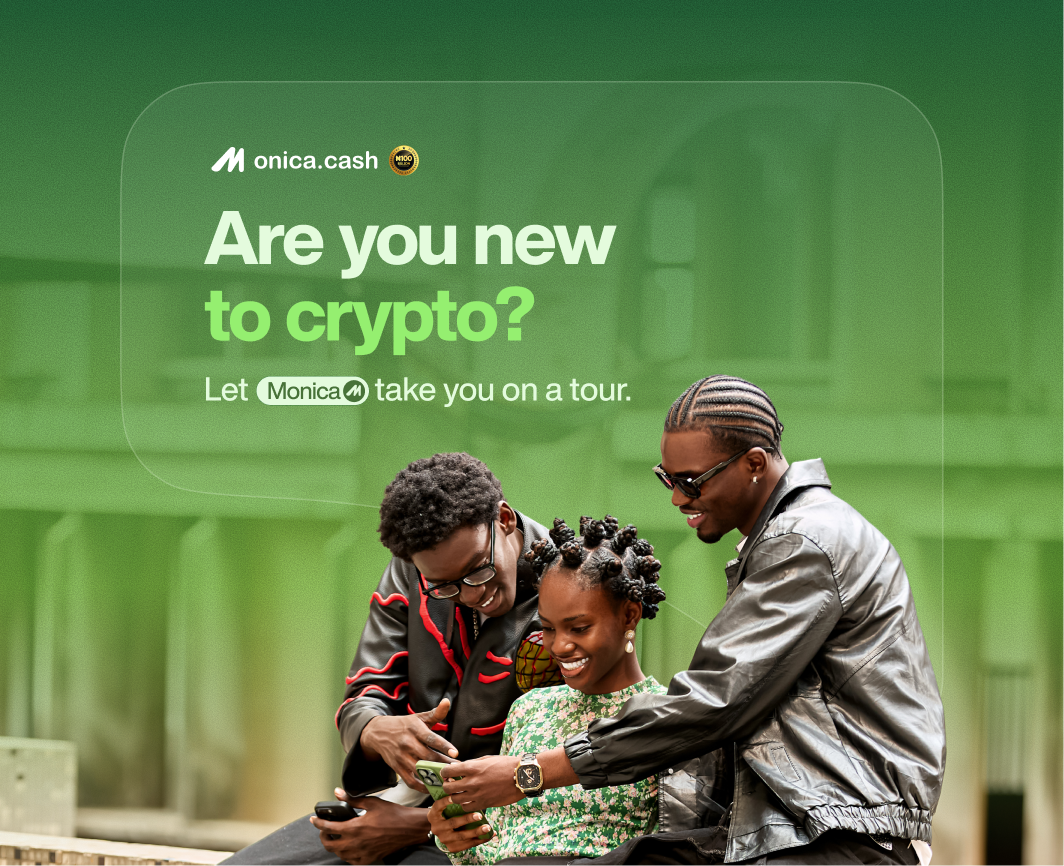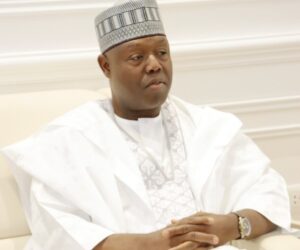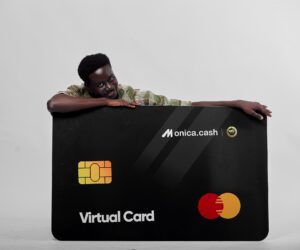
Navigating the world of digital currencies can feel overwhelming due to its complex terms and rapidly changing technology. For many, especially Nigeria’s vibrant and tech-savvy youth, the potential benefits are clear: financial inclusion, new investment opportunities, and a means to engage in a globalised economy. But where do you begin? This article will clarify essential concepts related to Bitcoin, Altcoins, and Stablecoins, and will introduce you to Monica.cash, a platform designed to make digital currency accessible and straightforward for Nigerians.
Understanding Bitcoin: The Digital Pioneer
Like gold, Bitcoin is a scarce digital currency, valuable, and designed to be a store of wealth that isn’t controlled by any entity, government or bank. That’s a simple way to describe Bitcoin. Created in 2009 by an anonymous entity known as Satoshi Nakamoto, Bitcoin was the first decentralised cryptocurrency. So, if you have been worried about what Bitcoin means. Just imagine it as gold, but in a digital form (abstract but exceedingly valuable).
But why is Bitcoin special?
-
Decentralisation: No single authority, like a central bank or government, controls Bitcoin. Transactions are verified and recorded by a vast network of computers across the globe. Think of it like a community-run ledger, transparent and secure.
-
Scarcity: According to experts, there will only ever be 21 million Bitcoins created. This fixed supply is a core reason why many see it as a hedge against inflation, similar to precious metals.
-
Security: Bitcoin’s underlying technology, known as blockchain, uses advanced cryptography to secure transactions, making it incredibly difficult to counterfeit or hack.
-
Global Reach: Bitcoin can be sent and received anywhere in the world, often faster and cheaper than traditional international bank transfers. Certainly, this is a significant advantage for Nigerians dealing with cross-border remittances or international trade.
How do you use it?
There are several beneficial ways Bitcoin could be used. Three of the top uses of Bitcoin are explained below;
-
Investment: Many Nigerians buy Bitcoin as a long-term investment, hoping its value will appreciate over time.
-
Peer-to-Peer Transactions: Sending money to friends or family, especially across state lines or even internationally, can be quicker and have lower fees than traditional methods. Imagine paying for goods from a local vendor in Lagos using Bitcoin, and they receive it almost instantly. With the use of the Monica.cash mobile app, this can even be more seamless and faster.
-
Savings: As a hedge against local currency devaluation, some individuals choose to hold a portion of their savings in Bitcoin. Despite volatility, patience allows users to reach a market value where the coin is still profitable. Any user can sell at this point.
Altcoins: Beyond Bitcoin
"Altcoin" is simply a short form for "alternative coin", meaning any cryptocurrency that isn’t Bitcoin. Thousands of Altcoins have emerged since Bitcoin, each with its own unique purpose, technology, and community.
Why do Altcoins exist?
While Bitcoin pioneered digital currency, it has a few limitations, such as transaction speed or the inability to run complex programs. Altcoins were often created to address these limitations or to offer entirely new functionalities.
Popular Altcoin categories and their uses:
a. Ethereum (ETH): The second-largest cryptocurrency by market cap, Ethereum introduced the concept of "smart contracts." These are self-executing contracts with the terms of the agreement directly written into code. Ethereum’s blockchain is the foundation for thousands of decentralised applications (dApps), from decentralised finance (DeFi) platforms to NFT marketplaces. For instance, developers building new apps or financial services might use Ethereum’s blockchain or artists creating digital art (NFTs).
b. Utility Tokens: Many Altcoins are utility tokens, meaning they provide access to a specific product or service within a decentralised network. For example, a gaming Altcoin might be used to buy in-game items or participate in governance. Imagine a local content creation platform that rewards creators with its own utility token, which can then be used to access premium features or vote on future content. This also works perfectly for reality TV shows or talent hunt shows such as Big Brother Naija, Nigerian Idol, DTH, etc., where there is a cult audience following and engagement.
c. DeFi Tokens: Decentralised Finance (DeFi) aims to recreate traditional financial services (lending, borrowing, trading) using blockchain technology, without intermediaries like banks. DeFi tokens often govern these platforms or serve as collateral. You can use DeFi as an alternative avenue for borrowing or saving, bypassing the hurdles usually associated with traditional banking, especially for those in underserved communities.
Stablecoins: Bridging the Gap
While Bitcoin and many Altcoins are known for their price volatility, they can go up or down significantly in a short period. Stablecoins are different. As their name suggests, they are designed to maintain a stable value.
How do Stablecoins maintain stability?
Most Stablecoins achieve price stability by being "pegged" or tied to a stable asset, typically the US dollar, at a 1:1 ratio. This means one Stablecoin (e.g., USDT, USDC) is intended to always be worth one US dollar.
Types of Stablecoins:
The following are the three major categories of Stablecoins
-
Fiat-backed: These are the most common. A company holds an equivalent amount of fiat currency (like USD) in reserve for every Stablecoin issued.
-
Crypto-backed: Stablecoins are backed by other cryptocurrencies, often in an overcollateralized manner to account for price volatility.
-
Algorithmic: These Stablecoins use algorithms and smart contracts to maintain their peg, though they have seen mixed success.
Stablecoins: the better alternative for Nigerians?
One of the major fears most Nigerians have about digital currencies is their volatility. But with Stablecoins that are largely pegged to a stable asset such as the United States dollar, the following are the benefits of Stablecoins which stand them out from other digital currencies.
-
Avoiding Volatility: For individuals and businesses who want to use digital currency for everyday transactions or to temporarily store value without the risk of dramatic price swings, Stablecoins are ideal. Imagine a trader in Nigeria wanting to cash out of volatile Altcoins but keep their funds in the crypto ecosystem without converting to Naira immediately, Stablecoins offer that stability.
-
Remittances and International Trade: Sending Stablecoins across borders can be faster and cheaper than traditional wire transfers, and the recipient receives a currency with a predictable value. This is a game-changer for Nigerian businesses importing goods or individuals receiving money from abroad. All of these are much easier when you use Monica.cash.
-
Savings: For those seeking to preserve purchasing power against potential local currency devaluation, holding US dollar-pegged Stablecoins can be an attractive option.
#FeaturedPost








